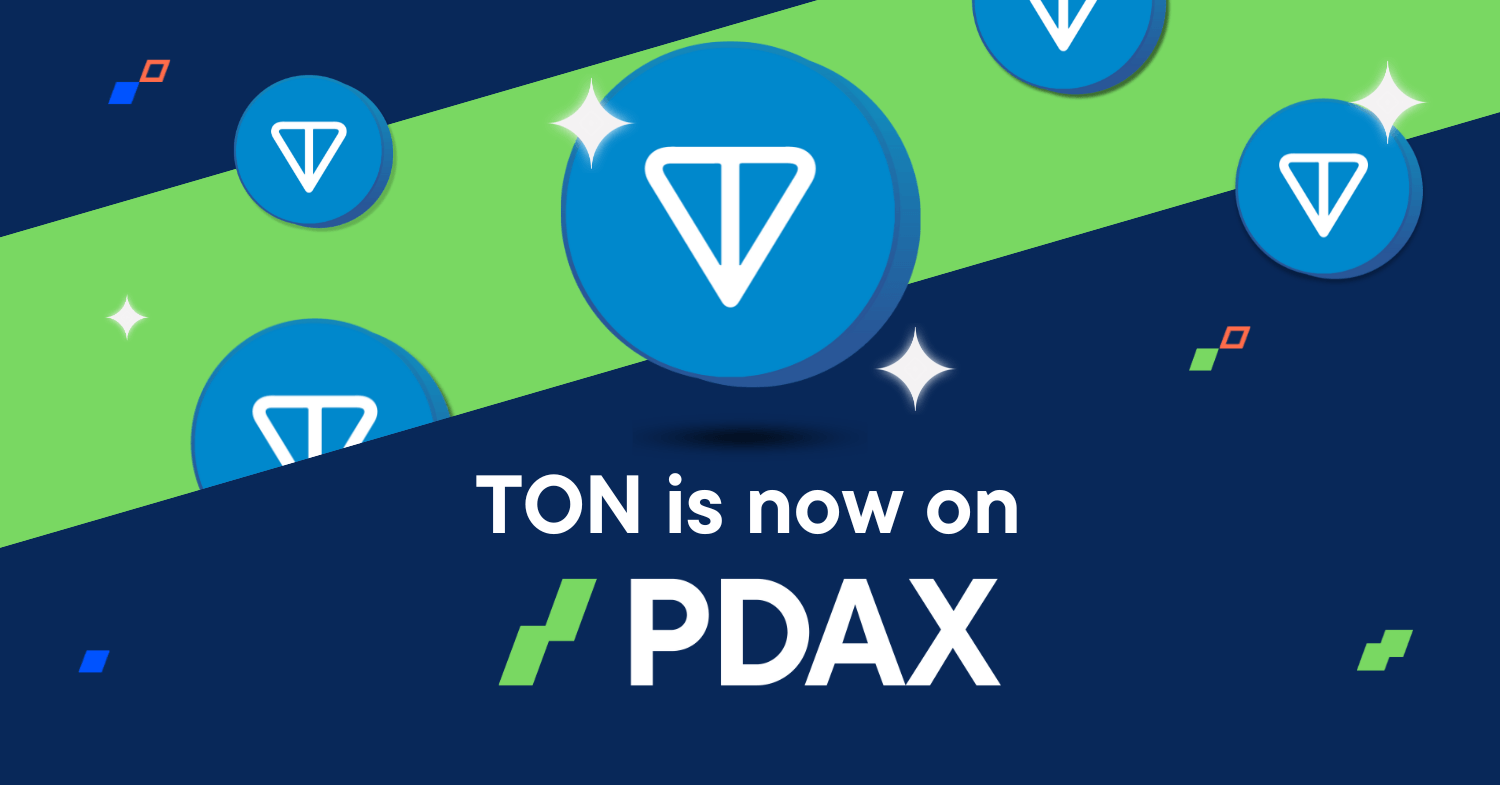PDAX Learn: There’s a ton to know about TON
PDAX
May 07, 2024
4 min read
In a nutshell: The Open Network (TON), originally put forward by the people behind the Telegram messaging platform, is now an independent DAO with ongoing development from its own open-source community, the TON Foundation. It is designed to be a “superserver” or a blockchain of blockchains, allowing other existing and future blockchains to operate with one another and the more conventional structures of the Internet.
If you’ve heard of Telegram and have been around the crypto scene, then you’ve also probably heard of TON, or The Open Network. As PDAX heralds the availability of the network’s native token, Toncoin, for trade, we can give you a brief background on what TON is and why it’s a promising blockchain to pay attention to.
What is TON, anyway?
The whitepaper for TON describes the layer-1 blockchain as follows:
The The Open Network (TON) is a fast, secure and scalable blockchain and network project, capable of handling millions of transactions per second if necessary, and both user-friendly and service provider-friendly. We aim for it to be able to host all reasonable applications currently proposed and conceived. One might think about TON as a huge distributed supercomputer, or rather a huge “superserver,” intended to host and provide a variety of services.
Unlike most other blockchains, layer-1 or otherwise, TON is designed with interoperability as a fundamental concept. Instead of trying to build its own insular structure, its ecosystem aims to bridge the gaps between other blockchains.
Which is not to say that TON’s own internal workings are shallow in comparison, as it carries deep complexity on its own even without accounting for interoperability. But while for other blockchains, interoperability is either an afterthought or a lower priority, for TON it’s the whole point.
As for the history of TON’s beginnings: What we now recognize as The Open Network was originally the Telegram Open Network, started in 2018 by the brothers behind Telegram: Nikolai and Pavel Durov. Its native token at the time was called the Gram, whereas now it’s called the Toncoin. And even though Telegram integration is still a major component of TON’s infrastructure, it stands apart as its own independent project under the non-profit TON Foundation.
If you want to dive deeper into the technical details, here are some links straight from ton.org, the home of TON:
- TON as the Blockchain of Blockchains
- A comparison between TON, ETH, and SOL as layer-1 blockchains
- The TON Documentation home page
If you really, really want a full-on course on understanding all the intricacies of the TON Blockchain, they have their own TON Academy under development. It’s still in progress, but well worth monitoring as they expand on its modules.
So, what about Toncoin?
TON, as with the tokens of other layer-1 blockchains, powers the smart contracts and decentralized applications built on TON.
The Toncoin reference website presents the full range of the token’s functionality, as well as a brief look at its history and its roadmap. You can click through to their site for the most up-to-date information compared to the time of this article’s publication as they refresh its contents regularly, but to date here is a snapshot from their site of Toncoin’s use cases:
1> Transaction processing fees for smart contracts
2> Cross-chain transaction fees
3> Payment services offered by apps on the platform
4> Contributing to network security via staking
5> Cross-chain transaction fees
6> Block-chain based payments
7> Validator’s stakes needed to maintain blockchain
8> Payment for decentralized data storage
Transaction processing fees for smart contracts. Cross-chain transaction fees. Payment services offered by apps on the platform. Contributing to network security via staking. Cross-chain transaction fees. Block-chain based payments. Validator’s stakes needed to maintain blockchain. Payment for decentralized data storage
Put simply, TON and Toncoin look to have a bright future ahead now that it’s picking up speed, thanks to the dedication of the TON Foundation. If there’s a cryptocurrency to follow aside from the bigger, more familiar names—especially if you’re already a Telegram user—Toncoin might be a good choice.
About PDAX
PDAX is a BSP-licensed exchange where you can trade Bitcoin, Ethereum, and other cryptocurrencies directly using PHP!
Featured Posts
You might also like
MON (Monad) is now on PDAX!
PDAX
December 04, 2025
PDAX Learn: USDC on Arbitrum is now on PDAX
PDAX
December 01, 2025
Pump.fun’s PUMP token is now on PDAX! 🎈
PDAX
November 26, 2025
Aerodrome Finance’s AERO token is now on PDAX!
PDAX
November 12, 2025
